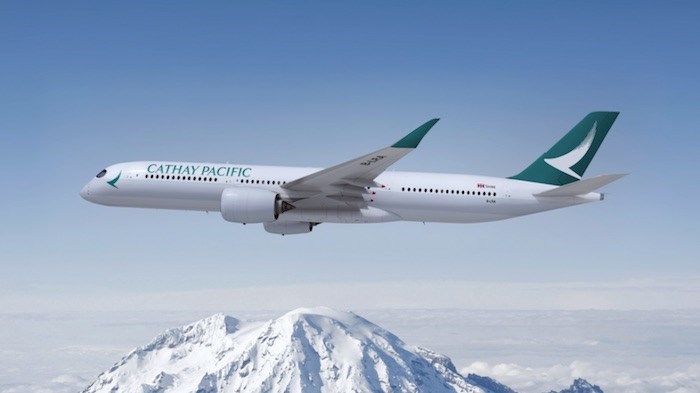 Cathay Pacific is one of two major airlines that have been experimenting with aviation biofuels. Photo: Cathay Pacific
Cathay Pacific is one of two major airlines that have been experimenting with aviation biofuels. Photo: Cathay Pacific
In a carbon-constrained world, the one sub-sector of transportation that may never be able to switch to electricity is aviation.
The battery powered electric passenger plane is not likely to land anytime soon – or ever – at an airport near you.
As energy scientist Vaclav Smil has pointed out, jet fuel is simply too perfect to replace. It is energy dense, it remains liquid up to -47% degrees Celsius, is safe to handle and cheap.
So the best the aviation industry can hope for is to come up with some replacement biofuel with the same or similar characteristics of kerosene, but without the emissions.
The industry is pursuing a kind of voluntary low-carbon fuel standard that would use biofuels, which would be added to conventional jet fuel (kerosene) to lower its carbon content.
Some airlines, like United and Cathay Pacific, are already using biofuels. But there is a limited supply of the stuff in Canada, so the Vancouver Airport Authority has partnered with several other organizations to launch a new project called BioPortYVR to develop a source of biofuels for YVR.
Its partners include the Green Aviation Research and Development Network, the Waterfall Group and SkyNRG – a consortium of companies that source and market aviation biofuels.
Aviation biofuels can be made from a variety of animal, plant and wood waste. It wouldn’t replace conventional jet fuel, but small amounts of it can be blended in to at least reduce the fuel’s carbon intensity.
The goal of BioPortYVR is to develop a supply chain for YVR and other airports in the region.
“As Canada's second busiest airport, we look forward to contributing to real and visible actions that have the potential to significantly reduce carbon emissions from air travel,” said Marion Town, Director, YVR’s director of environment.



